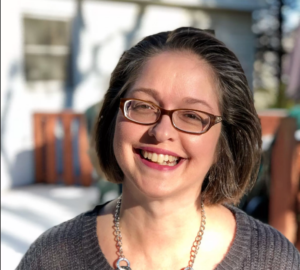Our church has been in a season of remarkable transition in the last year or so — a season of trusting and waiting and listening and deepening. Change is not usually easy and this is no exception; but I have noticed a sweetness to this season. God has worked in such gentle and unmistakable ways. Every need provided for, every shift purpose-filled. Watching God’s hand move over our community of faith has been an amazing, faith-building experience. It causes us to suspect we are on the cusp of something pretty powerful.
God’s theme through this season is an old one: wait. It has not been lost on us that the word “wait” is such a primal theme in the texts we call “wisdom literature.” Evidently, wise people know how to wait. Waiting on the Lord is a popular theme for the psalmist and a proverbial one for Solomon. Mary waited and pondered and she, too, was a wise woman.
Wait, God says. And the more I do it, the more I realize it isn’t what I thought it was. In moments of spiritual clarity, I see that waiting is not a gap of emptiness between two events. It isn’t a staring contest with God; we’re not toe-to-toe waiting to see who blinks first.
I’m struck by the connection between the term “waiting” and another biblical phrase, “the fullness of time.” While the waiting may seem to stretch on as empty space from my perspective, I am beginning to reckon that from God’s vantage point, this isn’t space at all but a full, rich basin of intangibles all designed to prepare me for the next thing. While I’m drumming my fingers or begging and pleading for movement, God is no-holds-barred working out his will.
Who knew the time was so full? Shaping, preparing, stripping, educating, awakening. All that must happen before we can move on wisely.
Think “desert travel.” After experiencing their complete lack of faith in their own future, God told Moses that not one person of the original generation of exodus travelers would make it across the line into the promised land. Everything and everyone that smacked of faithlessness and fear would be eradicated, because he simply wouldn’t allow those traits to seep into the DNA of his people. Those forty years they were marching in circles, God was busy sloughing off the old, birthing the new.
In the same way, our desert travels are not empty time but the very fullness of it, as God sheds from us everything that isn’t fit for the promised future he has appointed for us. He strengthens us with layers of spiritual sinew designed to help us stand (“mount up on wings like eagles; run and not grow weary; walk and not faint”) when this new thing happens. We get impatient and beg for movement while God works, knowing that a move in one moment less than the fullness of time will crush us.
Wait, he says. Not because he is finishing a crossword, or because he hasn’t yet figured out which direction the map is taking us. Wait, he says, because we are in the middle of something important now. Foundational work is being laid here, work that will help us hold the next thing.
Wait.
Wait actively — patiently (which is to say, lovingly), prayerfully, expectantly. Wait like the father who stands at the window, watching for his long-lost son to return. Wait like Mary, who knew from the moment of conception that she and her son were headed toward greatness. Wait like the angel assigned to a slab in an empty cave, sitting for who knows how long so he would be there when someone stopped by, to tell them of an unprecedented power and presence unleashed into the world. Wait like Paul, who sat in blind silence for three days while God completely rewired and wound him up for a new thing. Wait like John, who steeped in desert-island darkness long enough for his eyes to adjust, revealing the unhindered, unfurled Kingdom of God in three-D splendor.
Wait.
In our own season of waiting at Mosaic, we’re leaning heavily on God’s promises as we build our faith muscles. We’re learning to fast, something our circumstances didn’t require from us nearly so much in past days. We’re learning the kind of worship that looks like quiet trust (“Though he slay me, yet shall I praise him”). And we’re developing a more holy hunger.
In days past, we might have gorged on the first available opportunity to come our way. These days, we are allowing the wait to purify our motives. We aren’t on our own time any more; we are yearning toward the fullness of time. The work of waiting is creating in us a deeper hunger for the Kingdom to come, for God’s will to be done on earth, as it is in heaven. Right now, we can almost taste it. Maybe God will move the day we can actually taste it — taste and see that the Lord’s timing is delicious.
What if that is what all spiritual waiting is really about? What if our waiting is answering Jesus’ own prayer? What if our waiting is actually more important than the thing we’re waiting for? Wouldn’t that be just like God?
“I came that my joy might be in you,” Jesus said. As it turns out, joy is not a moment (like an emotion) but a process of being at peace with God’s pace and time.
Joy is embedded in the waiting.
A few questions for those challenged to wait: Do you have a knack for focusing on what you haven’t done instead of on how far you’ve come? Do you ever spend energy worrying about how slowly things change? Does your life move so fast that often you don’t have time to stop and notice the progress? Do others ever get frustrated with you because you are so hard on yourself?








